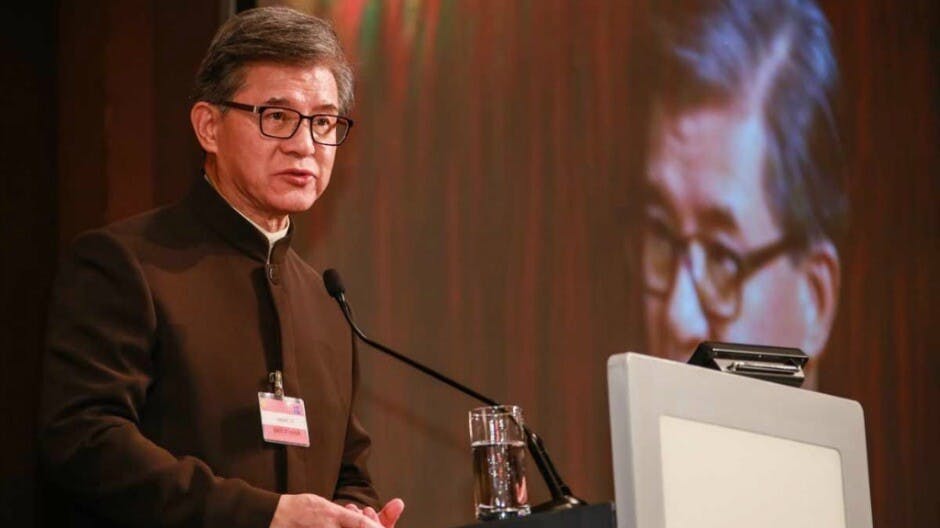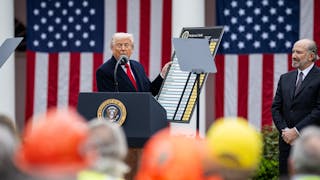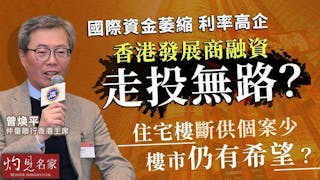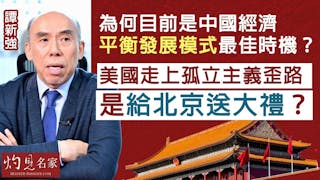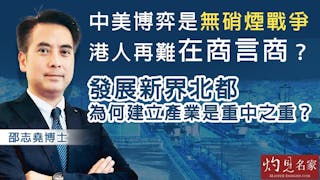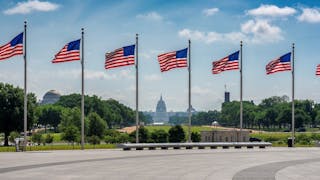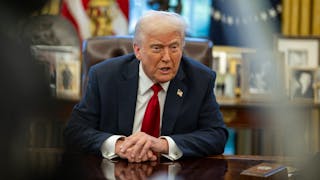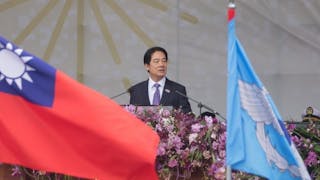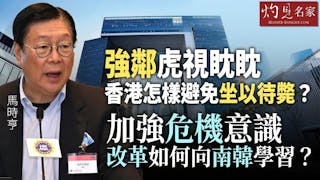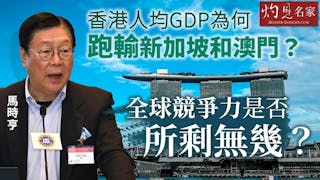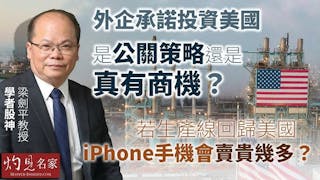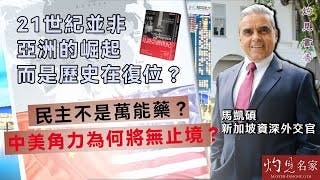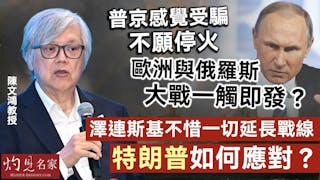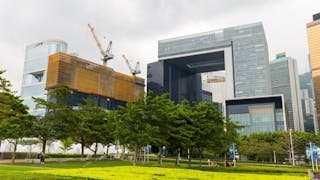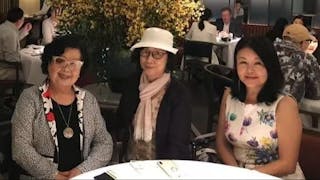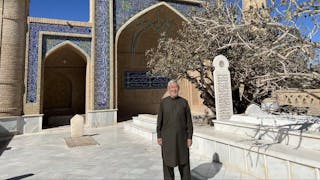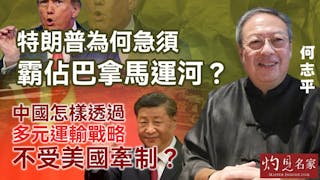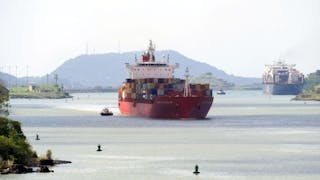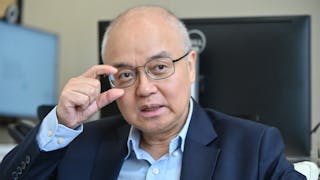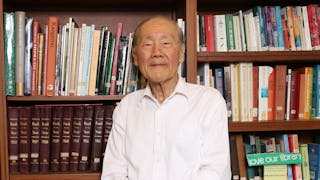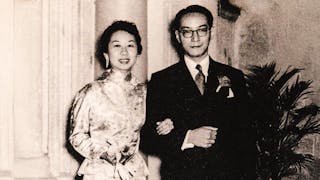This is the dinner keynote speech given by Mr. Vincent HS Lo at the Hong Kong Management Association (HKMA) Susan Yuen Memorial Lecture 2016.
羅康瑞,香港貿易發展局主席。瑞安集團創辦人及主席。曾擔任香港機場管理局主席,亦曾出任香港特區籌備委員會委員。現任中國人民政治協商會議第十二屆全國委員會委員、長江開發促進會理事長、重慶市人民政府經濟顧問、香港工商專業聯會永遠名譽會長。
Mr. Vincent HS Lo assumed Chairmanship of the Hong Kong Trade Development Council (HKTDC) in June 2015. He is the founder and Chairman of the Shui On Group. Prior to his recent position as Chairman of the Airport Authority Hong Kong, he had participated in the preparatory work of the establishment of the Hong Kong Special Administrative Region (HKSAR). He is currently a Member of The Twelfth National Committee of Chinese People’s Political Consultative Conference, President of the Council for the Promotion & Development of Yangtze, Economic Adviser of the Chongqing Municipal Government, Honorary Life President of the Business and Professionals Federation of Hong Kong.
Full Speech
Mr. Poon (Paul Poon, Chairman, Theme Year, HKMA), Mr. Lee (Michael Lee, Deputy Chairman, HKMA), Distinguished Guests, Ladies and Gentlemen,
It is a great pleasure to join you all this evening. I am delighted to be this year’s speaker at the Susan Yuen Memorial Lecture. I was involved with the HKMA in the 1980s serving on your Executive Committee under the chairmanship of Mr. David Li. I also represented the HKMA to serve on the Basic Law Consultative Committee from 1985 – 1990.
As one of Hong Kong’s pioneers in management training, the HKMA is an institution that has made an impact on Hong Kong’s economic development. Not only because we all need to enhance our skills continuously throughout our careers, but also because the changing business landscape demands new perspectives and new ways of thinking.
Your theme this year – “Building Business Resilience in a Challenging Economic Environment” – is most timely.
Like other economies around the world, Hong Kong is experiencing a “perfect storm” of economic, political and social challenges all at the same time.
Today I would like to discuss some of the key challenges affecting our economic environment, and share with you some of my thoughts and experience on how we can prepare ourselves for the future.
Hong Kong’s Challenges
Firstly, on economic challenges: As an externally-oriented economy, Hong Kong is impacted by the world around us, and this year is seeing quite a few historic events.
There is Brexit in the UK. We are still waiting to see which way the wind will blow, and how changes in the UK and the EU will affect some of our most established trading and investment markets.
Over in the US (the world’s largest economy), it’s a choice between Clinton and Trump. The only thing they appear to have in common is their opposition to the TPP, or Trans-Pacific Partnership, which again will impact Hong Kong’s trade-oriented economy.
Closer to home, the Chinese economy is slowing to a moderate pace, (not by world standards) and cities like Shanghai is fast developing into a global city, while other cities in Asia are catching up too.
How can Hong Kong maintain an edge? With Hong Kong’s economy forecast to grow only 1 to 2 per cent this year, we must find a way to re-boot our economy.
In terms of political challenges, Hong Kong faces a very divided society with increasingly divergent views, resulting in delays in the legislative process which is hindering progress.
And we also see many social challenges. Our ageing population, shrinking workforce, housing problem and rising wealth gap all contribute to growing discontent and polarisation within our society.

The Game-changer of Hong Kong and the World
Faced with all these challenges, we know that change is needed. But how will things change? What is going to drive change? And how can we adapt our businesses to turn change into opportunity?
I would say that the Belt and Road Initiative will be the game-changer and a major engine that can energize not only the Hong Kong economy but the global economy.
Spanning over 60 countries and a population of 4.4 billion, and covering over 30% of the world’s GDP, this grand development concept can invigorate the global economy by building connectivity to integrate Asia with Europe and beyond in physical, economic and social terms.
For Hong Kong, we can take advantage of this initiative to turn a new page for our economy if we play our cards right.
How can Hong Kong benefit from the Belt and Road?
If we look at physical infrastructure as the initial element to kick-start the Belt and Road process, we can consider a few factors that work in our favour:
First, the size of the pie: Management consulting firm PwC forecasts by 2025, annual global spend on infrastructure will reach US$9 trillion, with Belt and Road nations such as Asia and Central and Eastern Europe taking up US$5 trillion a year. (PwC Capital project and infrastructure spending Outlook to 2025)
Secondly, the involvement of China: Chinese enterprises last year (2015) invested around US$14.8 billion in 49 countries related to the Belt and Road, many of these on infrastructure and related areas like telecoms, utilities, machinery and others. (MOFCOM, Jan 18, 2016)
Then there’s the Hong Kong factor: we are the largest offshore RMB centre, and the lion’s share of China’s outbound investment is channeled through Hong Kong – even 2 years ago it was already almost 60% (57.8%). As the Chinese government continues to expand its bilateral agreements with Belt and Road countries, more ODI will be generated from the resulting investments, offering huge potential for our financial markets.
If we put these factors together and add our trinity of (i) rule of law, (ii) a sound international financial system and (iii) our experienced international professionals, we can see how Hong Kong can package Belt and Road projects and financing into commercially viable investments. After building the infrastructure, trade and investment will follow. Hong Kong’s experience and contributions in the development and growth of the Chinese Economy in the past 30 over years is what we can do in the Belt and Road countries.
And it is this pivotal role that Zhang Dejiang, Chairman of China’s National People’s Congress, spelt out at our Belt and Road Summit earlier this May.
Belt and Road will benefit smaller sectors
Although some may think the Belt and Road will only benefit large corporations, you can imagine how the increased business activity can also benefit smaller operational and support sectors such as logistics and travel, business services, consultancy, technology, training and many others, not to mention manufacturers in related fields in construction, materials and others.
Even niche operators such as traders of Halal products or market specialists in security systems will find ample opportunities at this early stage if they study the opportunities carefully.
And as the Belt and Road Initiative continues to develop, connectivity will bring new markets which in turn can create jobs, opportunity and growth.
Moving away from my sales pitch, you may want to know what this grand scheme means for your business, and how to equip yourself and your staff. Here, I would like to draw some parallels with my own experience.
I remember when China first opened up in 1978, many people in the Hong Kong business community were rather skeptical about prospects in the China market. At that time, only a handful of Hong Kong real estate developers were looking north because Hong Kong’s economy and property sector was booming.
But as I pondered the future of my company, I realized that the market reforms in mainland China offered an unusual opportunity, even though there were many unknowns. So I decided to take a calculated risk to go into the China market in the mid 80s.
Preparing for the opportunity
To prepare for this, I literally started with the basics: I started by researching about modern-day China, its history, political ideology, and system, its economic structure and culture which were not taught in any of the Hong Kong schools’ curriculums.
I also knew it was vital to learn the language. So I engaged a Putonghua tutor from Beijing, from whom I learnt not only how to communicate, but also first-hand information on the views of the ordinary people from the Mainland, their values and difficult life that they had gone through since the establishment of the PRC. I also learnt about the workings of the Chinese society, the CCP and the Government, and what had changed since the Reform and Open Up Policy was established.
Of course, nothing prepared me for the endless rounds of Maotai with Chinese businesspeople and government officials when I first ventured into the Mainland in 1985.
Or the subtle arrangement of ‘cooperation agreements’ when we were signing multi-billion US dollar-projects with only a vaguely worded 6-page contract.
Looking back, my research and how to prepare myself for the ‘new ways’ of doing business on the Mainland were the main factors that helped me gain a foothold in mainland China.
I see a similar situation unfolding for developing new initiatives from the Belt and Road. Because of the huge scope of this Initiative, finding our bearings is a tough challenge.
So, I would recommend doing your homework first. A great place to start would be the TDC’s Belt and Road portal, launched late last year. With information and advisors available, it can help you make informed decisions about your business and how to align it with new opportunities ahead.
I would also make an effort to understand the history, culture, legal system and ways of conducting business, religion and even the language of these countries, to get a fuller picture. We at the TDC is also helping to give some guidance with on-going research.
The HKMA also, can consider introducing a module in your curriculum focused on some of these topics, and, for the corporates, you can identify suitable staff and form a core team to develop appropriate and necessary skillsets and knowledge at an early stage.
Again, I remember when it was incredibly difficult to persuade capable staff to be posted to the Mainland in the early days. Back then, going to China was a “hardship post” that required additional pay and perks, and we were using Foreign Exchange Certificates (外匯券) even though there was not much to spend on in those days.
Fast forward to now, posting to China is a commonplace arrangement, but some countries along the Belt and Road will be where China was 30 years ago. Its banking system and infrastructure facilities may only be developing at a preliminary and elementary stage, so a basic knowledge and a suitably receptive and curious mind are crucial to deal with unfamiliar things – from even mundane tasks such as paying for your hotel with a credit card to knowing how to deal with the local government.
This is exactly why we need to prepare, nurture and educate our people early. Throughout the years, the HKMA has been nurturing our management talent by opening up their minds and expanding their networks.
I’m glad that you have taken a visionary approach to identify the Belt and Road Initiative as a future opportunity for our city in your recent “Study of Trends and Challenges Facing Hong Kong.”
The HKMA would be the ideal institution to provide training for the business community:
For management personnel, presenting macro-economic knowledge on Belt and Road markets, their different political, economic and social systems, government structures and models of commercial management would be essential knowledge.
Operational staff needs to acquire special technical knowledge across different fields with additional focus on the Belt and Road specifics. The key issue is how to apply their skills in a new context.
And across the board, soft skills will be more important than ever in linking up the diverse regions of the Belt and Road. Linguistic skills, intercultural business communications and even religious, cultural and social understanding will be part of the training.
Joint programmes, exchanges and networking activities with Belt and Road organisations or institutions would be one idea to start building a network. You can of course also join the TDC’s broad range of activities and events to broaden your network.
Tonight, I have been looking back to look forward. I hope my experience resonates with some of you who have been through the many changes that Hong Kong has gone through.
Ahead of us, I see not only risks and challenges for Hong Kong, but also huge potential and rewards from the Belt and Road Initiative.
But the Belt and Road is a long game. For a forward-looking institution such as the HKMA, I believe you are well-positioned to continue developing Hong Kong’s talent to help our businesses become more resilient by preparing for the future.
It means more than ramping up our current capabilities – it also means adjusting our mindset, and preparing our people and structures to venture into a brave new world.
The HKMA has nurtured many outstanding individuals who have made invaluable contributions to Hong Kong. I would now like to congratulate the winners of this year’s HKMA’s Award for Excellence in Training and Development. You are our game-changers, and we hope Hong Kong will benefit from your success.
Thank you very much.





